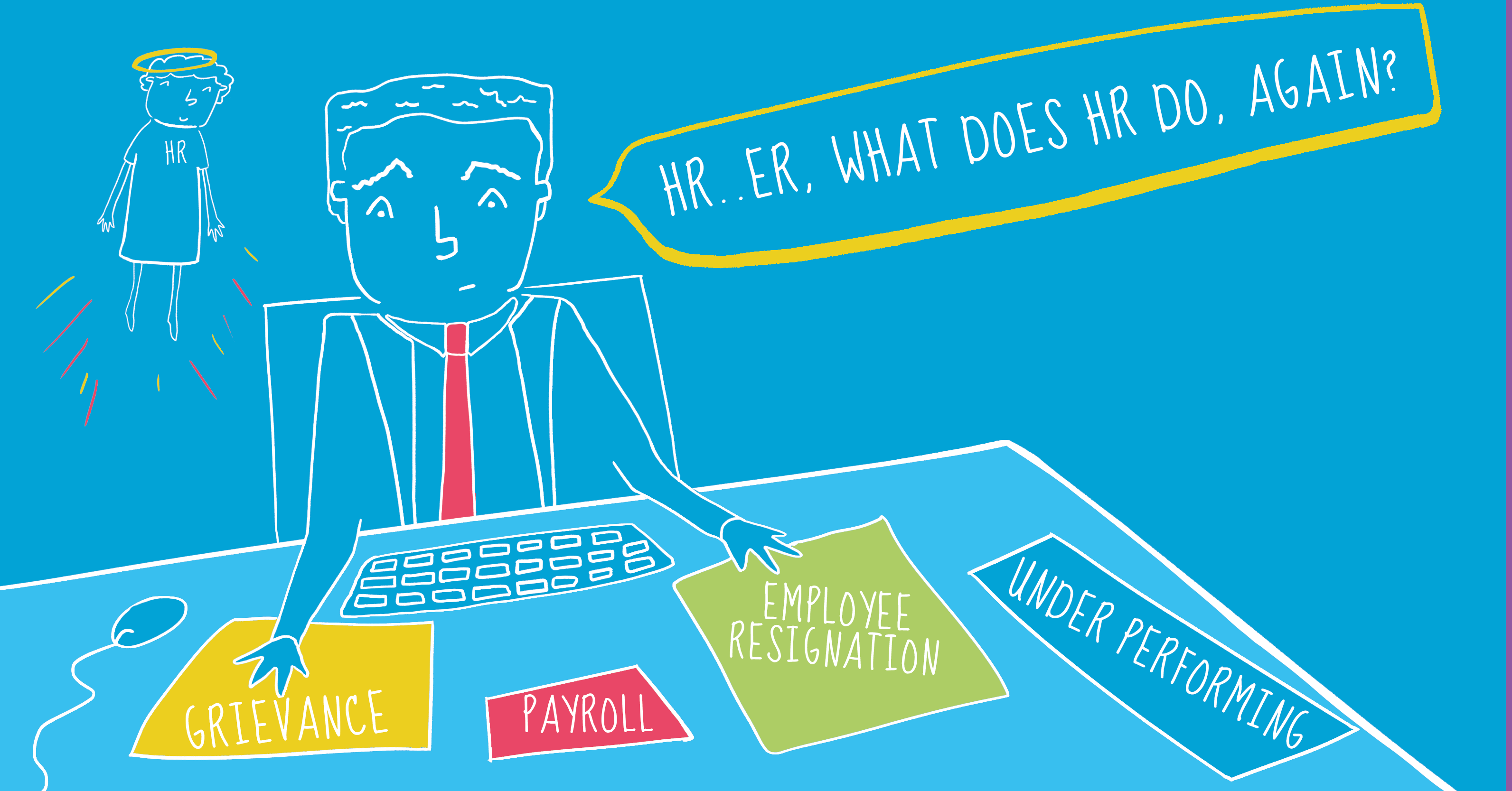
The role of HR in a business and the value it adds is sometimes misunderstood!
We see that there are two sides to HR, results-oriented, strategy focused leadership and management of people, (People Operations) and the Legal, ethical and structural organisation of employees and teams (HR).
The basics
Unless you're a sole trader, you employ at least a few people - maybe dozens or even hundreds. And you owe those people a certain duty of care.
At its most basic, that means making sure that everyone knows:
For most companies, this is all imparted to employees in the form of a company handbook. A lot of businesses don't actually have all their rules collated anywhere, leaving managers and employees alike in a state of uncertainty when something goes wrong.
Unless there are clear guidelines in place, small matters can spiral out of hand and you could lose a good employee, or find yourself in a tricky situation which can be expensive and time consuming. Or, you might find yourself with a team member who is not the right fit but it is difficult to manage them out of the business.
A human resources consultant (like Edelweiss HR) will sort all that out for you in the form of a company handbook. That sets the bar for everyone's behaviour - which in turn is the basic level of forming a company culture. Company values can also be included to help everyone understand how you want your business run.
Not everything is plain sailing...
In the last two years the work place has changed as have attitudes to work and how teams and individuals perform best.
There is a new challenge as we adapt to balancing working from home and returning to the office.
Plenty of people feel happy to manage all kinds of situations themselves, but asking difficult questions is... well... difficult. So this is where an HR professional could work with you. Although HR is sometimes seen as an ally of management (by disgruntled employees in particular) what we try to do is find a solution to a variety of situations that works for everyone. It may be that the person is suffering outside of work, or feels intimidated or harassed by a colleague so it is in everyone's interest to get to the truth and find something that works. That could range from sorting out a staged return to work, liaising with medical professionals, or disciplining the person.
Now I can see from here that you are very smart and capable, but even if you are smart and capable and willing to deal with this kind of thing on your own, you have to make sure you're operating within the letter of the law.
Many companies use a solicitor to try to mitigate against that - and there's nothing wrong with that. But...
In a way then, you might want to think of HR as a buffer' between you and potentially expensive legal situations. Dot the I's and cross the T's and you significantly reduce your chance of exposure to legal action.
The nicer things
The People Operations side of HR can also help you to make a happier workplace.
We believe that by establishing the right company culture and values teams work better, more effectively and less problems arise.
We think creatively about how to rewards excellence.
It could be in the form of structured bonuses paid on the achievement of certain targets. Or it could be that you have a generous holiday entitlement. Or, increasingly, things like in-office perks such as flexible working hours, or away days to build team morale.
Again, perhaps you might be thinking: "well I could do that myself!" and you could be right - but like a lot of things in business, you might consider delegating the introduction and management of these things to either someone in the business, or an external consultant, you can then focus on other areas to grow your business.